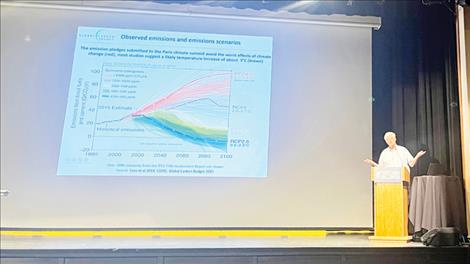Climate scientist: MT should expect climate-driven water, wildfire woes
Steve Running, a 2007 Nobel Peace Prize recipient, discussed the global causes and local implications of climate change at an event in Billings.
Keep Reading!
You’ve reached the limit of 3 free articles - but don’t let that stop you.
















